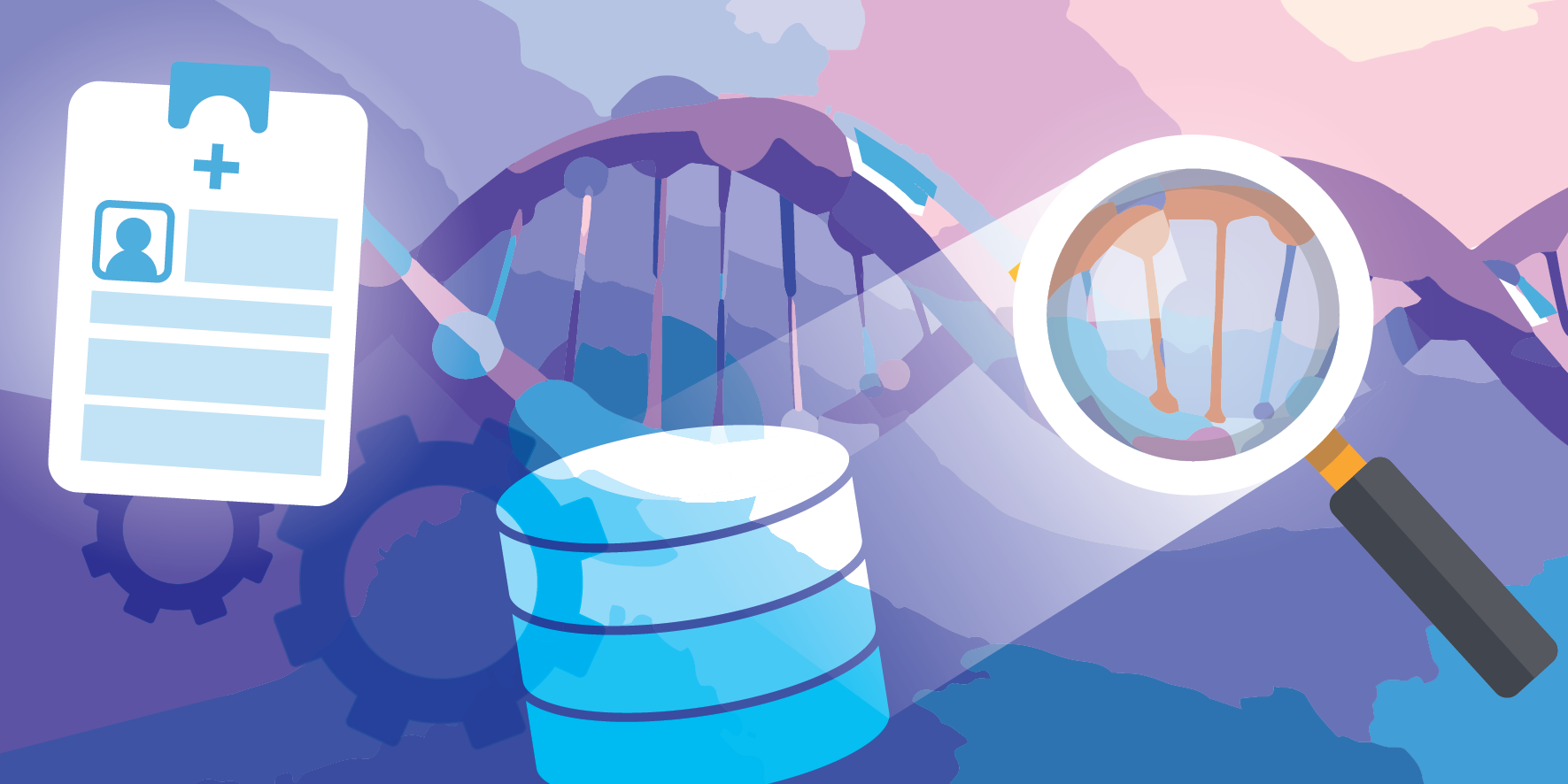About us
Learn how GA4GH helps expand responsible genomic data use to benefit human health.
Learn how GA4GH helps expand responsible genomic data use to benefit human health.
Our Strategic Road Map defines strategies, standards, and policy frameworks to support responsible global use of genomic and related health data.
Discover how a meeting of 50 leaders in genomics and medicine led to an alliance uniting more than 5,000 individuals and organisations to benefit human health.
GA4GH Inc. is a not-for-profit organisation that supports the global GA4GH community.
The GA4GH Council, consisting of the Executive Committee, Strategic Leadership Committee, and Product Steering Committee, guides our collaborative, globe-spanning alliance.
The Funders Forum brings together organisations that offer both financial support and strategic guidance.
The EDI Advisory Group responds to issues raised in the GA4GH community, finding equitable, inclusive ways to build products that benefit diverse groups.
Distributed across a number of Host Institutions, our staff team supports the mission and operations of GA4GH.
Curious who we are? Meet the people and organisations across six continents who make up GA4GH.
More than 500 organisations connected to genomics — in healthcare, research, patient advocacy, industry, and beyond — have signed onto the mission and vision of GA4GH as Organisational Members.
These core Organisational Members are genomic data initiatives that have committed resources to guide GA4GH work and pilot our products.
This subset of Organisational Members whose networks or infrastructure align with GA4GH priorities has made a long-term commitment to engaging with our community.
Local and national organisations assign experts to spend at least 30% of their time building GA4GH products.
Anyone working in genomics and related fields is invited to participate in our inclusive community by creating and using new products.
Wondering what GA4GH does? Learn how we find and overcome challenges to expanding responsible genomic data use for the benefit of human health.
Study Groups define needs. Participants survey the landscape of the genomics and health community and determine whether GA4GH can help.
Work Streams create products. Community members join together to develop technical standards, policy frameworks, and policy tools that overcome hurdles to international genomic data use.
GIF solves problems. Organisations in the forum pilot GA4GH products in real-world situations. Along the way, they troubleshoot products, suggest updates, and flag additional needs.
GIF Projects are community-led initiatives that put GA4GH products into practice in real-world scenarios.
The GIF AMA programme produces events and resources to address implementation questions and challenges.
NIF finds challenges and opportunities in genomics at a global scale. National programmes meet to share best practices, avoid incompatabilities, and help translate genomics into benefits for human health.
Communities of Interest find challenges and opportunities in areas such as rare disease, cancer, and infectious disease. Participants pinpoint real-world problems that would benefit from broad data use.
The Technical Alignment Subcommittee (TASC) supports harmonisation, interoperability, and technical alignment across GA4GH products.
Find out what’s happening with up to the minute meeting schedules for the GA4GH community.
See all our products — always free and open-source. Do you work on cloud genomics, data discovery, user access, data security or regulatory policy and ethics? Need to represent genomic, phenotypic, or clinical data? We’ve got a solution for you.
All GA4GH standards, frameworks, and tools follow the Product Development and Approval Process before being officially adopted.
Learn how other organisations have implemented GA4GH products to solve real-world problems.
Help us transform the future of genomic data use! See how GA4GH can benefit you — whether you’re using our products, writing our standards, subscribing to a newsletter, or more.
Join our community! Explore opportunities to participate in or lead GA4GH activities.
Help create new global standards and frameworks for responsible genomic data use.
Align your organisation with the GA4GH mission and vision.
Want to advance both your career and responsible genomic data sharing at the same time? See our open leadership opportunities.
Join our international team and help us advance genomic data use for the benefit of human health.
Discover current opportunities to engage with GA4GH. Share feedback on our products, apply for volunteer leadership roles, and contribute your expertise to shape the future of genomic data sharing.
Solve real problems by aligning your organisation with the world’s genomics standards. We offer software dvelopers both customisable and out-of-the-box solutions to help you get started.
Learn more about upcoming GA4GH events. See reports and recordings from our past events.
Speak directly to the global genomics and health community while supporting GA4GH strategy.
Be the first to hear about the latest GA4GH products, upcoming meetings, new initiatives, and more.
Questions? We would love to hear from you.
Read news, stories, and insights from the forefront of genomic and clinical data use.
Attend an upcoming GA4GH event, or view meeting reports from past events.
See new projects, updates, and calls for support from the Work Streams.
Read academic papers coauthored by GA4GH contributors.
Listen to our podcast OmicsXchange, featuring discussions from leaders in the world of genomics, health, and data sharing.
Check out our videos, then subscribe to our YouTube channel for more content.
View the latest GA4GH updates, Genomics and Health News, Implementation Notes, GDPR Briefs, and more.
Discover all things GA4GH: explore our news, events, videos, podcasts, announcements, publications, and newsletters.
21 Feb 2024
The Technical Alignment Subcommittee (TASC) aims to harmonise aspects of GA4GH technical products and support interoperability. Learn more and provide feedback on their current project about pagination methods.

The GA4GH Technical Alignment Subcommittee (TASC) has developed recommendations for how GA4GH technical products handle pagination. The community is invited to provide feedback and attend an open meeting on February 26 at 14:00 UTC.
When an investigator queries a database, they may receive hundreds or even thousands of results back. To help the user process and navigate the information, software applications use a technique called pagination. In their latest project, TASC provides guidelines for how software developers can implement pagination in GA4GH products.
TASC launched in 2020 to ensure GA4GH standards can be used together effectively, collecting issues from across the Work Streams and developing guidance to support technical consistency and alignment. Members of TASC, which include at least one representative from each Work Stream, bring together knowledge and expertise from multiple organisations and countries. Through its efforts, TASC aims to lower the barriers to GA4GH-wide interoperability and, in turn, increase adoption of GA4GH standards: a key imperative of the 2020 GA4GH Strategic Plan.
There are a variety of pagination methods used in software development, and developers across GA4GH will at some point decide how to implement it. To support alignment across the Work Streams and improve both the developer and user experience, TASC aims to simplify the decision making process and share guidance with the community.
Pagination involves dividing data into smaller, more manageable chunks instead of receiving one long response back from a data query. Like turning the pages of a book, which makes it easier for the reader to keep their place, pagination provides a structured approach to navigating information — making it easier to process, display, and analyse data. Behind the scenes, pagination also improves computer performance, like improving efficiency when executing a task or reducing the size of result payloads.
After reviewing and describing pagination methods used by the Tool Registry Service, Beacon, and Data Connect APIs, TASC proposes that GA4GH technical products use either offset-based or token-based pagination methods.
For use cases in which users wish to explore and jump around within a small result set, TASC recommends employing offset based pagination. This flexible approach allows the user to skip pages at will and configure the number of records they would like to see at a time. To implement offset-based pagination, TASC suggests encoding two parameters — the maximum number of records to display, and from which “page” to retrieve that data.
When implementing pagination on a much larger result set, TASC recommends switching over to token-based pagination. In token-based pagination, the user feeds a unique token to the application, which then returns a specified page of data. The application also responds back with a token for the next page of data, ensuring consistency and predictability.
In the current draft of the pagination guide, TASC encourages new GA4GH standards to apply one of these two techniques depending on their use case, and invites existing GA4GH standards to consult with TASC on whether and how to adopt these approaches.
To share your thoughts on the pagination guide, TASC invites the community to attend the next TASC meeting on February 26 at 14:00 UTC. Feedback can also be submitted through the Github issues page in the TASC repository.
